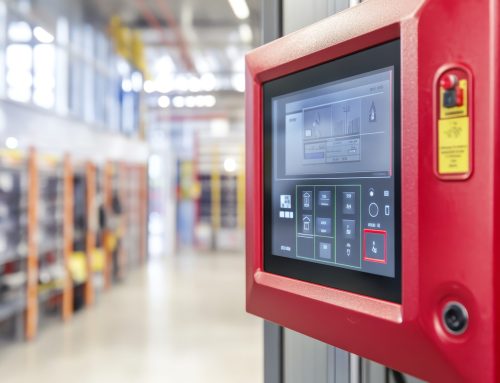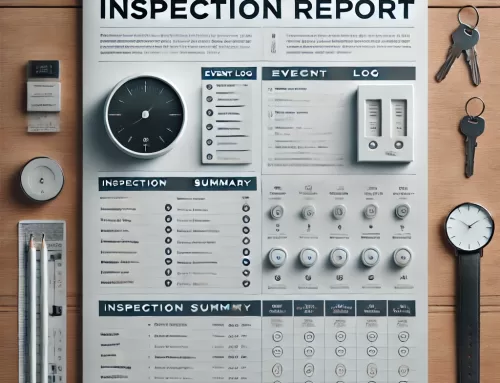Ensuring the proper functioning of a fire alarm system is critical for the safety of any building and its occupants. A fire alarm panel, also known as a fire alarm control panel (FACP), is the central component that monitors and controls the various devices within the system. When troubles occur on the fire alarm panel, it can indicate underlying issues that need to be addressed promptly to maintain the system’s reliability. In this article, we’ll explore some common causes for troubles on your fire alarm panel and discuss how to identify and resolve them.
Understanding the Fire Alarm Panel
Before delving into the common causes of troubles, it’s essential to have a basic understanding of how a fire alarm panel operates. The panel serves as the command center for the fire alarm system, receiving signals from smoke detectors, heat detectors, pull stations, and other devices installed throughout the building. When a sensor detects smoke, heat, or manual activation, it sends a signal to the panel, which then triggers alarms, alerts occupants, and notifies emergency responders.
Common Causes of Troubles
In the realm of fire alarm systems, troubleshooting is paramount for ensuring the safety and security of buildings and their occupants. Understanding the common causes of troubles that may arise on a fire alarm panel is the first step towards effective maintenance and problem resolution. From faulty wiring to communication failures, each potential issue poses its own set of challenges.
Consider these common causes of false alarms, as well as some strategies for identifying, addressing, and preventing troubles on fire alarm panels:
Faulty wiring
One of the most common causes of troubles on a fire alarm panel is faulty wiring. Over time, wiring connections can become loose or damaged, leading to communication errors between the panel and the connected devices. Additionally, exposure to environmental factors such as moisture or rodents can also compromise wiring integrity.
Power supply issues
The fire alarm panel relies on a consistent power supply to function correctly. Power disruptions, voltage fluctuations, or issues with backup batteries can result in troubles on the panel. Insufficient power can lead to system malfunctions, false alarms, or the inability to detect and respond to actual fire incidents.
Device malfunctions
Individual devices within the fire alarm system, such as smoke detectors, heat detectors, or pull stations, may experience malfunctions that trigger troubles on the panel. This could be due to sensor contamination, component failure, or improper installation. Regular testing and maintenance of these devices are essential for early detection of potential issues.
Programming errors
Incorrect programming or configuration of the fire alarm panel can result in troubles or false alarms. This may include improper zoning, sensitivity settings, or alarm verification criteria. It’s crucial to ensure that the panel is programmed according to the building’s layout, occupancy, and safety requirements.
Environmental factors
Environmental conditions can impact the performance of a fire alarm system and contribute to panel troubles. Extreme temperatures, humidity levels, dust accumulation, or exposure to corrosive substances can affect the operation of sensors, wiring, and electronic components. Regular inspections and environmental monitoring can help identify and mitigate these issues.
Tampering or vandalism
Intentional tampering or vandalism of fire alarm devices or the panel itself can cause troubles and compromise the system’s reliability. Unauthorized modifications, disconnecting devices, or physical damage to equipment can interfere with the panel’s ability to detect and respond to fire hazards.
Communication failures
Fire alarm panels often rely on communication networks to transmit signals to monitoring centers, emergency responders, or building management systems. Communication failures due to network outages, signal interference, or equipment malfunction can result in troubles on the panel and hinder timely emergency response.
Identifying and Resolving Troubles
When troubles occur on the fire alarm panel, it’s essential to promptly identify and resolve the underlying issues to ensure the system’s continued effectiveness. Here are some steps to take:
- Review panel display: Check the fire alarm panel display for any error messages, trouble codes, or indicators of system malfunctions. Note any specific information provided by the panel, such as device names, zones, or communication errors.
- Inspect devices and wiring: Conduct a physical inspection of fire alarm devices, wiring connections, and power supplies. Look for signs of damage, corrosion, loose connections, or environmental factors that may affect performance. Ensure that all devices are properly installed and functioning as intended.
- Perform functional tests: Conduct functional tests of individual devices and system components to verify their operation. Test smoke detectors, heat detectors, pull stations, and audible/visual alarms to ensure they trigger appropriate responses on the panel.
- Check power supply: Verify the integrity of the power supply to the fire alarm panel, including main power and backup batteries. Ensure that power sources are operational, voltage levels are within specified ranges, and battery backups are fully charged.
- Review system programming: Review the programming and configuration settings of the fire alarm panel to ensure they align with building requirements and codes. Make any necessary adjustments or corrections to zoning, sensitivity levels, or communication protocols.
- Address environmental factors: Mitigate environmental factors that may impact the performance of the fire alarm system. Take measures to control temperature and humidity levels, eliminate dust or debris accumulation, and protect equipment from moisture or corrosive substances.
- Monitor communication networks: Monitor communication networks and interfaces used by the fire alarm panel to ensure reliable transmission of signals. Address any network issues, signal disruptions, or equipment failures that may affect communication with external monitoring systems or emergency responders.
- Document and report issues: Keep detailed records of troubleshooting activities, test results, and corrective actions taken to address panel troubles. Report unresolved issues or recurring problems to qualified technicians or fire alarm service providers for further investigation and resolution.
Fire Systems, Inc.
Maintaining the reliability and functionality of a fire alarm system is essential for protecting lives and property in the event of a fire emergency. Understanding the common causes of troubles on your fire alarm panel and taking proactive measures to identify and resolve issues can help ensure the system operates effectively when needed most. By conducting regular inspections, performing functional tests, and addressing underlying issues promptly, you can minimize the risk of system malfunctions, false alarms, and delays in emergency response. Always consult with qualified technicians or fire alarm professionals for assistance with troubleshooting and servicing your fire alarm panel to ensure compliance with safety standards and regulations. Fire Systems, Inc. is an all-services, Atlanta-based fire protection company that has been serving the Atlanta area for almost 40 years. As a family-owned and family-operated business, Fire Systems truly cares for their customers and providing all customers with the highest possible quality fire protection service. Contact Fire Systems at 770-333-7979 or visit the website for information on all that we offer.






